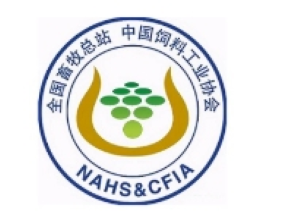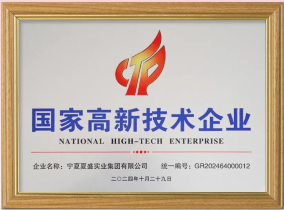Beer is one
of the oldest alcoholic beverages in the world, with its origins dating back to
ancient civilizations such as the Egyptians and the Mesopotamians. The brewing
process has evolved over time, with modern-day beer production relying heavily
on the use of enzymes. Enzymes are proteins that catalyze chemical reactions,
and they play a critical role in the beer brewing process.
1.
Alpha-amylase
Alpha-amylase
is an enzyme that breaks down starch into dextrin that is later further
degraded by other enzymes into much simpler sugars, such as maltose and
glucose. It is found in malted barley, which is a key ingredient in beer
brewing. During the mashing process, alpha-amylase is activated by water and
heat, and it begins to break down the starch in the barley into fermentable
sugars. This process is critical for beer production because yeast can only
ferment simple sugars, not complex starches. External alpha-amylase is often
used for adjunct liquefaction and if inferior malt has to be used.
Advantages of
using alpha-amylase in beer brewing include fast viscosity reduction of mash, increased
brewhouse efficiency and consistency in the mashing process. By breaking down
the starch into smaller sugar molecules, alpha-amylase makes it easier for
yeast to consume the sugars and convert them into alcohol. This results in a
higher yield of alcohol and a more consistent flavor profile in the beer.
2.
Beta-amylase
Beta-amylase
is another enzyme found in malted barley that breaks down starch into sugar
molecules. However, beta-amylase specifically targets the end of the starch
chain, producing maltose. This is important because maltose is the primary
sugar used by yeast during fermentation. Many times fungal amylase is used intead due to its similar function and cheaper price.
The use of
beta-amylase in beer brewing can result in a more fermentable wort, which can
lead to a higher alcohol content in the finished beer. Additionally,
beta-amylase can help produce a drier beer with a crisper finish, which is
desirable in many beer styles.
3. Protease
Protease is
an enzyme that breaks down proteins into smaller peptides and amino acids. It
is found in malted barley and can be activated during the mashing process.
While the primary role of protease in beer brewing is to provide yeast with
essential amino acids for growth and metabolism, it can also have an impact on
the stability, flavor and mouthfeel of the finished beer.
When protease
breaks down proteins, it releases amino acids and peptides that can contribute
to the flavor and aroma of the beer. Additionally, protease can help improve
the clarity and stability of the beer by breaking down proteins that can cause
haze and sedimentation.
4.
Glucoamylase
Glucoamylase
is an enzyme that breaks down complex sugars, such as maltodextrins, into
glucose molecules. It can be added to the wort to increase fermentable sugar
level and increase alcohol yield.
The use of
glucoamylase in beer brewing can result in a drier beer with a crisper finish.
Additionally, it can help improve the beer's shelf life by breaking down
residual sugars that can contribute to spoilage.
5. Xylanase
Xylanase is
an enzyme that breaks down hemicellulose, a complex carbohydrate found in
barley and other grains. It is typically added to the beer during the mashing
process to help break down the cell walls of the barley and release more
fermentable sugars and at the same time reduce wort viscosity. Arabinoxylanase
are used to break down complex carbohydrates, which improve the efficiency of
the mashing process and increase the yield of fermentable sugars.
The use of
xylanase in beer brewing can result in a higher yield of fermentable sugars,
which can lead to a higher alcohol content in the finished beer. Additionally,
it can help improve the mouthfeel and body of the beer by breaking down complex
carbohydrates that can contribute to a thick, heavy mouthfeel.
6.
Alpha-Acetolactate Decarboxylase (ALDC)
ALDC helps
convert alpha-acetolactate, a precursor to diacetyl, into acetoin, which has a
more desirable flavor profile. By using ALDC, brewers can produce beer with a
smoother, more balanced flavor, without requiring extended aging or
conditioning.
Beta-glucanase
is an essential tool for modern brewers who want to produce high-quality beer
consistently and efficiently. By breaking down beta-glucans in the mash, this
enzyme can help to reduce wort viscosity, and improve wort clarity,
fermentation efficiency, and overall beer quality, making it an essential
ingredient in the brewing process.
Beta-glucanase is particularly useful when working with under-modified malts or adjuncts like barley, which can contain high levels of beta-glucans. These ingredients can be difficult to work with and may result in poor wort clarity and reduced fermentation efficiency. By adding beta-glucanase to the mash, brewers can overcome these issues and produce a high-quality beer that meets their standards.
Enzymes play
a critical role in the beer brewing process, from adjunct flexibility, malt
enhancement, brewhouse efficiency improvement, beer stabilization and new
product development. Enzymes are essential to the production of high-quality
beer. By understanding the various enzymes used in beer brewing and their
effects and advantages, brewers can create unique and flavorful beers that
satisfy even the most discerning of palates. Sunson’s pioneered the launch of
beta-glucanase blend for brewing, and our product portfolio covers all the aforementioned
applications and have been successfully used in industry.

















